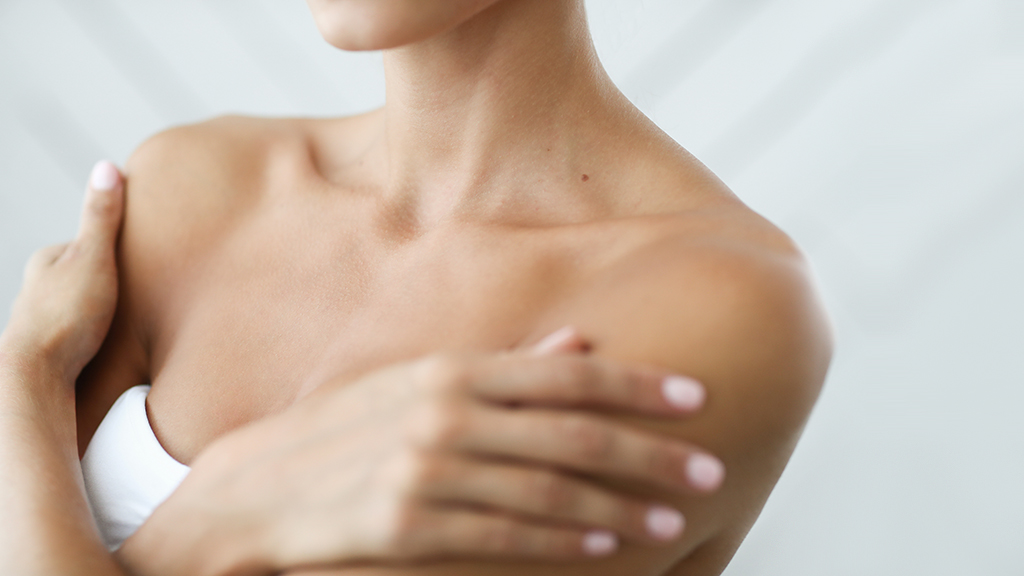Risks and Complications of Skin Peels
Every procedure involves a certain amount of risk, and it is important that you understand these risks and the possible complications associated with them. In addition, every procedure has limitations. An individual’s choice to undergo a procedure is based on the comparison of the risk to potential benefit. Although the majority of patients do not experience these complications, you should discuss each of them with your practitioner to make sure you understand all possible consequences of chemical skin-peeling and other forms of skin treatment.
Skin peel risks are fairly minor compared to the risks associated with invasive cosmetic surgery procedures. However, this does not mean that the treatment is risk free. Skin peel complications and poor results can occur for a number of reasons. Here are some of the ways things might go wrong:
- The patient’s skin is not prepared for the peel
- The skin peel is not a good match for the patient’s skin tone
- The peel is too strong or too weak
- The peel is not applied correctly (for example, some solution is dripped on the wrong area)
- The chemical solution is not neutralized and removed at the right time
- The patient has a sensitivity or allergy to an ingredient in the skin peel
- The patient does not follow post-operative instructions carefully
- The patient has unrealistic expectations about the level of improvement offered
Normal Skin Peel Risks
The common side effects associated with skin peels are unpleasant, but they almost always resolve over time. Your practitioner will discuss each potential side effect and how long it should last based on the depth of your peel. These issues can include:
- Redness
- Swelling
- Irritation
- Pain
- Oozing
- Scabbing
- Scaling
- Tightness
- Peeling
Be sure to keep any follow up appointments with your practitioner. If the symptoms are severe or do not heal in a reasonable amount of time, this can be an indication of a serious complication.
Potential Skin Peel Complications
Infection – Although infection following chemical skin peels is unusual, bacterial, fungal, and viral infections can occur. Herpes simplex virus infections around the mouth can occur /reoccur following a chemical peel. This applies to both individuals with a history of Herpes simplex virus infections and individuals with no known history of Herpes simplex virus infections in the mouth area. Specific medications must be prescribed and taken both prior to and following the procedure in order to suppress an infection from this virus. Should an infection occur, additional treatment including antibiotics, hospitalization, or additional treatment may be necessary. It is important to tell your practitioner of any other infections, such as ingrown toenails, insect bites, or urinary tract infections. Remote infections, infections in other parts of the body, may lead to an infection in the treated area.
Scarring – Although good wound healing after a procedure is expected, abnormal scars may occur within the skin and deeper tissues. In rare cases, keloid scars may result. Scars may be unattractive and of a different colour than the surrounding skin tone. Scar appearance may also vary within the same scar. Scars may be asymmetrical (appear different on the right and left sides of the body). Whenever there is any disruption of the skin abnormal scars may occur within the skin and deeper tissues. To avoid the risk of scarring, it is important that you follow all pre-and post-treatment instructions carefully.
Colour Change – Chemical-peeling agents can permanently lighten the natural colour of your skin. There is the possibility of irregular colour variations within the skin including areas that are both lighter and darker. Permanent darkening of the skin has occurred after chemical peels. A line of demarcation between normal skin and skin treated with a chemical peeling agent can occur. Redness after a chemical peel may persist for unacceptably long periods of time.
Accutane (Isotretinoin) – Accutane is a prescription medication used to treat certain skin diseases. If you have ever taken Accutane, you should discuss this with your practitioner. This drug may impair the ability of the skin to heal following treatments or surgery for a variable amount of time even after the patient has ceased taking it. Individuals who have taken this drug are advised to allow their skin adequate time to recover from Accutane before undergoing skin treatment procedures.
Allergic Reactions – In rare cases, allergies have been reported to drugs and agents used for chemical-peeling or skin treatments, tape, suture materials and glues, blood products, topical preparations, and preservatives used in cosmetics. Serious systemic reactions including shock (anaphylaxis) may occur to drugs used during surgery and prescription medications. Allergic reactions may require additional treatment.
Lack of Permanent Results – Chemical peel or other skin treatments may not completely improve or prevent future skin disorders, lesions, or wrinkles. No technique can reverse the signs of skin aging. Additional surgical procedures may be necessary to further tighten loose skin. You may be required to continue with a skin care maintenance program after a chemical peel procedure.
Heart Problems – Chemical-peeling preparations containing phenol have been reported to produce abnormal heartbeats that may require medical treatment should they occur during the procedure. This is a potentially serious problem.
Skin Discoloration / Swelling – Some swelling normally occurs following a chemical skin peel. The skin in or near the procedure site can appear either lighter or darker than the surrounding skin. Although uncommon, swelling and skin discoloration may persist for long periods and, in rare situations, may be permanent.
Skin Sensitivity – Itching, tenderness, or exaggerated responses to hot or cold temperatures may occur. Usually, this resolves during healing, but in rare situations, it may be chronic.
Damaged Skin – Skin that has been previously treated with chemical peels or dermabrasion, or damaged by burns, electrolysis (hair removal treatments), or radiation therapy may heal abnormally or slowly following treatment by lasers or other surgical techniques. The occurrence of this is not predictable. Additional treatment may be necessary. If you have ever had such treatments, you should inform your practitioner.
Pain – You may experience pain or discomfort after your treatment. Pain/discomfort of varying intensity and duration may occur and persist.
Unknown Risks – There is the possibility that additional risk factors of chemical skin peels and skin treatments may be discovered.
Deep Skin Peel Complications
Application of phenol carries the most significant chemical peel risks. Phenol can cause organ failure if too much of the chemical is absorbed into the patient’s system during treatment. A deep peel performed with the patient under general anaesthesia carries additional risks associated with the anaesthetic.
Factors That Increase Chemical Peel Risks
- Patients with darker skin tones are at greater risk for unsatisfactory outcomes from chemical peels due to uneven results.
- Individuals with a tendency toward keloid scarring (raised scars) may experience permanent scarring – especially with deeper peels.
- Patients who have very sensitive skin or a history of dermatitis (skin rashes) may be particularly prone to swelling and irritation after a peel.
- Certain medications such as oral contraceptives can increase the risk of unwanted pigment changes.
- Smoking can interfere with normal healing after a medium to deep peel.
- Patients who have had a cold sore in the past may break out in blisters that leave permanent scars after a mid-level or deeper peel.
- Individuals with severe acne or other active bacterial skin infections have a higher risk of poor wound healing.
Unsatisfactory Results
This is actually one of the more common skin peel risks. Not all patients respond well to a skin peel. They may expect to see a greater degree of improvement and be disappointed with the results. Or, they might think the peel should have longer lasting results. The fact is that light and medium peels usually don’t have their full effect after just one session. These peels are designed for repeated application over a series of treatments for maximum impact. A deep peel is the only type that is done just once and that has effects that last for many years.
ADDITIONAL ADVISORIES
Smoking – Patients who are currently smoking or use tobacco or nicotine products (patch, gum, or nasal spray) are at a greater risk for complications of delayed healing, scarring, and pigmentation.
Medications and Herbal Dietary Supplements – There are potential adverse reactions that occur as the result of taking over-the-counter, herbal, and/or prescription medications.
Be sure to check with your practitioner about any drug interactions that may exist with medications that you are already taking. If you have an adverse reaction, stop the drugs immediately and call your practitioner for further instructions.
Sun Exposure – Direct or Tanning Salon – The effects of the sun are damaging to the skin. Exposing the treated areas to the sun may result in increased scarring, colour changes, and poor healing. Patients who tan, either outdoors or in a salon, should inform their practitioner and either delay treatment, or avoid tanning until the practitioner says it is safe to resume. Following treatment sunblock of 30 SPF and higher should be used.
Long-Term Results – Subsequent alterations in appearance may occur as the result of aging, sun exposure, pregnancy, menopause, or other circumstances not related to skin treatments. Skin peels do not arrest the aging process or produce permanent tightening of the skin. Future surgery or other treatments may be necessary to maintain your results.
Skin Lesion Recurrence – Skin lesions can recur after a chemical peel or skin treatment. Additional treatment may be necessary.
Skin Cancer / Skin Disorders – Skin peels and skin treatment procedures do not offer protection against developing skin cancer or skin disorders in the future.
For details about procedures and treatments or for a consultation, advice and prices from our Dubai clinic please call +971 4 431 2396 or use our online form.


